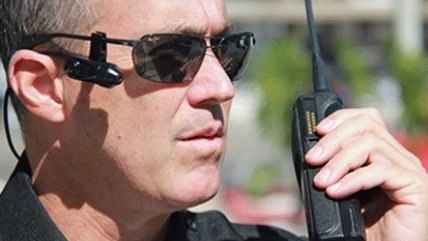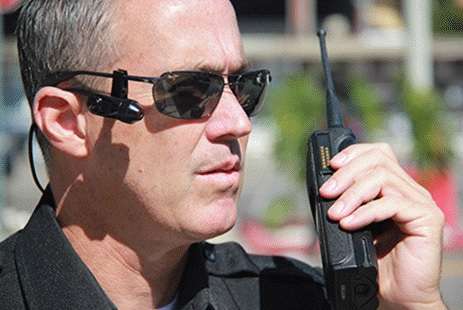DOJ Announces Funds for Police Body Cameras, but Keep an Eye on the Rules Cities Implement
New rules in Los Angeles give officers opportunity to review evidence in advance.


New Attorney General Loretta Lynch today announced the Department of Justice (DOJ) will be offering $20 million in body camera equipment and training to police departments across the country. This was not an unexpected development. The Obama administration was pushing for body cameras as a way of improving policing in the wake of Michael Brown's shooting in Ferguson, Missouri. From the DOJ:
"Body-worn camera technology is a valuable tool for improving police-citizen relationships," said Director Denise O'Donnell of the Bureau of Justice Assistance. "BJA is committed to helping law enforcement agencies identify the safest and most effective methods for deploying this technology and addressing factors such as privacy, archiving and legal regulations surrounding its use. BJA stands by to guide agencies through what can be a complex process toward more successful adoption of the technology."
The Justice Department expects to provide 50 awards to law enforcement agencies, with about one-third of the grants directed toward smaller law enforcement agencies. The grants, which require a 50/50 in-kind or cash match, can be used to purchase equipment but applicants must establish a strong plan for implementation of body-worn cameras and a robust training policy before purchasing cameras. The long term costs associated with storing this information will be the financial responsibility of each local agency.
Keep an eye on those implementation plans, though. In the aftermath of Freddie Gray's death while in the custody of the Baltimore Police, Reason has noted how police officers have special rights when they're faced with accusations of potentially criminal misconduct. In Baltimore, a police officer can wait for 10 days before having to answer questions from investigators, thanks to union rules.
We're seeing similar potential problems with how law enforcement agencies may implement rules in how body camera footage will be used in investigations. Former Reason Editor Matthew Feeney, now at the Cato Institute, took note of part of the new policy proposed for the use of body cameras by the Los Angeles Police Department earlier this week. The LAPD's body camera policies would allow officers in use of force incidents to review his or her own camera footage before being interviewed by investigators:
This proposal would provide officers with an opportunity that is not afforded to citizens accused of crimes: to view evidence against them prior to being interviewed by investigators. Police officers involved in a use-of-force incident should not be allowed to view their own body camera footage or the footage captured by colleagues' body cameras before speaking to investigators. An officer involved in a use-of-force incident should give comments to investigators that have not been influenced by police body camera footage.
Allowing officers to view body camera footage before speaking to investigators not only means that their statements will not necessarily be an accurate reflection of what they thought during the incident, it also allows officers the opportunity to look for evidence that may exonerate them before a statement is made.
Nevertheless, the new rules were passed by the Los Angeles Police Commission Tuesday, though not without some debate. From the Los Angeles Times:
The American Civil Liberties Union of Southern California opposed letting officers see the videos first, arguing that the practice would give them an opportunity to shape their accounts around what the recording showed. Giving officers — but not the public — a chance to look at the footage also undermined the accountability that the cameras are intended to bring, the organization said.
Commissioner Robert Saltzman agreed, saying the department needed to be mindful of a widespread public perception that officers aren't always truthful.
But LAPD Chief Charlie Beck said allowing officers to first look at the footage would help them "get to the truth of what occurs," a key objective of using the body cameras. Beck said he doesn't intend to make the footage public in the vast majority of cases, citing privacy issues and the fact that they could be used as evidence in criminal or civil cases.
The ACLU subsequently dropped support for the program.


Show Comments (11)